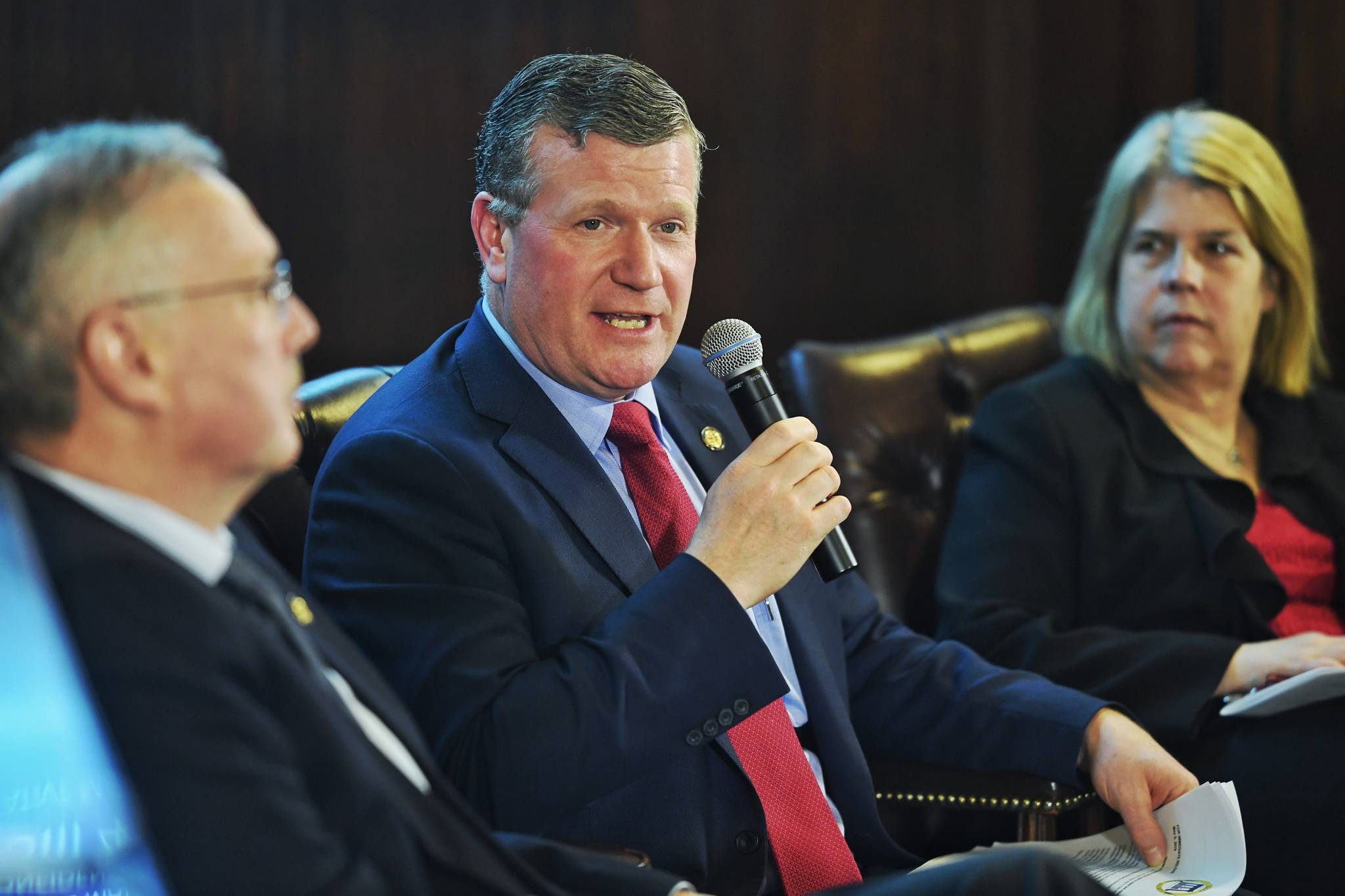The Alaska House of Representatives voted Wednesday to repeal and replace parts of Senate Bill 91, the controversial criminal justice legislation that some have pointed to as gasoline on the fire of the state’s current crime wave.
The House Judiciary Committee, chaired by Rep. Matt Claman, D-Anchorage, presented the bill basically as a compromise of many of Gov. Mike Dunleavy’s proposed criminal justice bills. Rep. Tammie Wilson, R-North Pole, said on the House floor Wednesday that the bill increases sentencing ranges for many felony charges, imposes further protections regarding solicitation of minors and cracks down harder on drug dealers. At the same time, provisions in it are aimed to help people get back on their feet after struggling with substance abuse or being in prison.
Claman, Rep. Tammie Wilson, R-North Pole, and other members of the Majority said they worked closely with the Dunleavy administration on this legislation, and they thanked the administration for being open to the tweaks and changes they made.
[To repeal or not? Statewide crime commission hoping for feedback on SB 91]
The bill now goes to the Senate, with less than a week left in the session. Rep Chuck Kopp, R-Anchorage, repeatedly said to reporters Wednesday that time is a major concern. Wilson said the Senate Finance Committee might start looking at the bill as soon as Thursday morning.
Proponents of SB 91, which was passed two years ago, have said there hasn’t yet been enough time since then to really see it taking its full effect. Wilson acknowledged that they need more statistics to fully evaluate SB 91, but they knew that at least some parts of it were far too easy on those who have committed crimes.
“There’s compromises in this, because we still don’t have all the data necessary on the different programs that have been put in place, but at the same time, we knew changes needed to be done,” Wilson said.
For example, HB 46 broadens the scope of what can be classified as soliciting a minor, Claman said. Possessing tools commonly used in car thefts would now also be a crime. Someone can also be charged with an additional felony if they are charged with a felony and miss a court appearance, Claman explained.
One key difference between the governor’s proposals and HB 46, Wilson said, was that this bill puts a particular focus on those struggling with substance use disorders. The bill’s “two strikes and you’re out” clause, as lawmakers called it, imposes a misdemeanor on a person’s first two drug offenses, but it ramps up to a felony on the third charge. With this increase, there’s an incentive to enter treatment and get better.
“It’s smart on time and tough on crime,” Claman said, “and that’s really what the public wants us to do.”
[Dunleavy declares ‘war on criminals’ in State of State]
As indicated by the vote on the floor, there was far from unanimous approval of the bill. Some members of the House Minority condemned the Majority for pushing this bill too quickly and bringing up amendments at the last minute without enough time to prepare before the final vote.
Kopp responded to those concerns afterward by saying he believed all the parts of the bill were mentioned at least at some point during the committee process.
Kopp also said the communication between the House and Senate leaders has been “unprecedented,” in large part because constituents are demanding solutions to the state’s crime problems, the fiscal situation and the future of the Alaska Permanent Fund dividend.
“When you’re in desperate times, people come together,” Kopp said, “and that’s what you’re seeing, is people coming together in this legislative body to answer really hard questions. I love to see it, because this Legislature is all in. People need to either be all in or get out, because times are too tough for being halfway right now.”
• Contact reporter Alex McCarthy at amccarthy@juneauempire.com. Follow him on Twitter at @akmccarthy.

